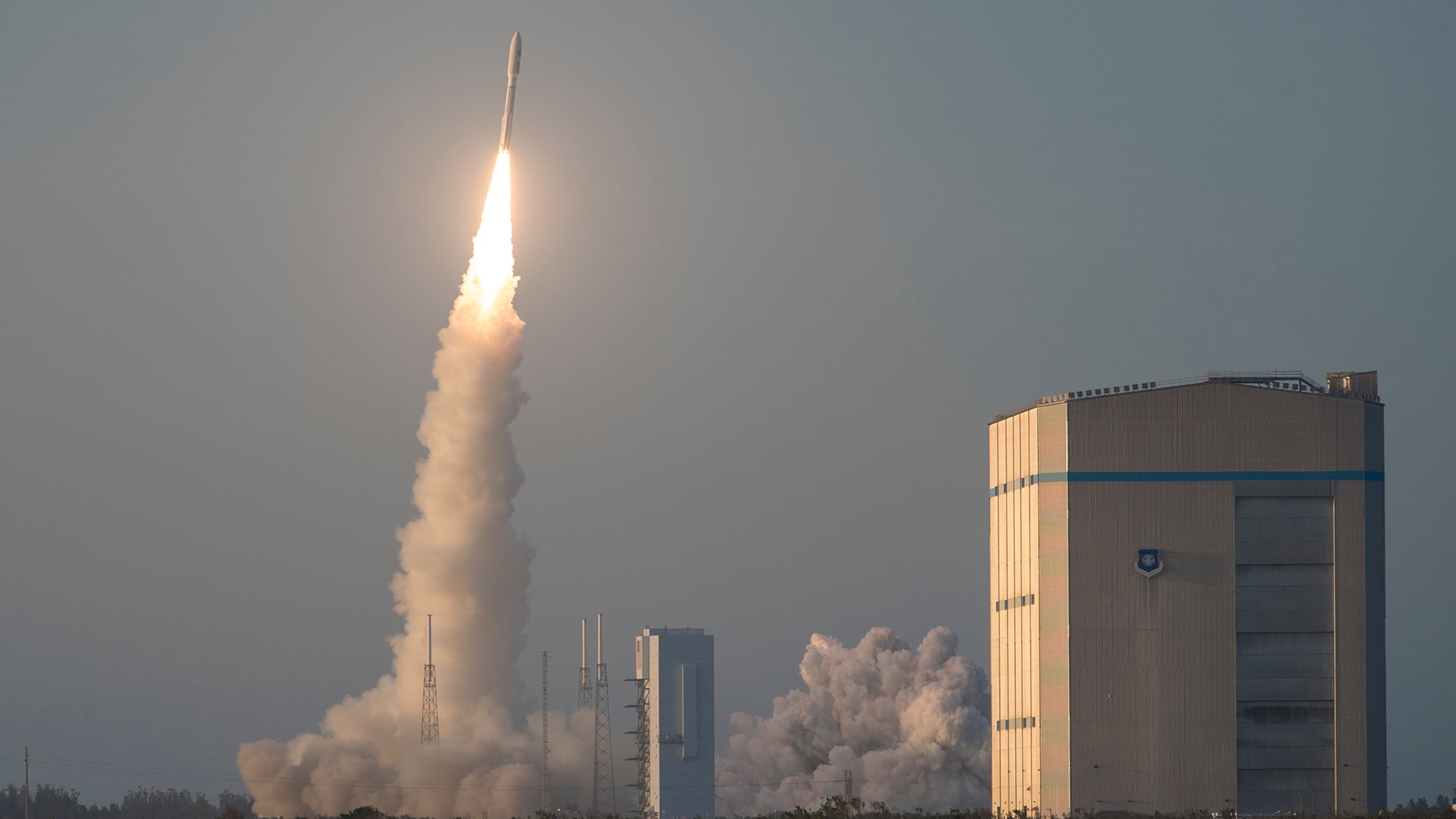WASHINGTON — The future location of U.S. Space Command, and all its associated jobs and dollars, won’t be coming before the November election, thanks to a directive by Secretary of Defense Mark Esper to relaunch the department’s search process.
On Tuesday, Space Force Vice Commander Lt. Gen. David Thompson told the House Armed Services Committee that department leaders are “going to take a holistic look at all of the potential options, all the potential locations" being considered for the combatant command.
“We’ve been directed to go back, open up the aperture, and look at all of them. And so, that includes — that include bases. It includes perhaps some nontraditional locations. We will absolutely establish the criteria we need for each of these organizations and then base them accordingly,” he added.
And on Wednesday, Secretary of the Air Force Barbara Barrett confirmed that the Air Force would be restarting the national competition for Space Command’s location.
“We’re going to reopen the process, and put forward criteria in detail and invite all who think they have a good shot at it to come and represent their communities for that possible basing choice,” the secretary said. Barrett added that an announcement on the new competition would come “this spring.”
Those comments led to a pointed line of questioning to Esper from Sen. Doug Jones, D-Ala., who during a Senate Armed Services Committee hearing directly asked if the decision to recompete was tied up in electoral politics.
Thompson testified that “the Air Force was directed — and I emphasize the word ‘directed’ — to go back and open this up," Jones said. "A cynical person in today’s world would think there are some electoral politics coming into play in this.” He then pointedly asked if the decision came from the White House.
A leaked 2019 memo of potential bases listed four locations in Colorado — Buckley Air Force Base, Cheyenne Mountain Air Force Station, Peterson Air Force Base and Schriever Air Force Base — as well as the Army’s Redstone Arsenal in Alabama and Vandenberg Air Force Base in California. There has been heavy political push from the Florida delegation as well.
Awarding Space Command and its myriad of jobs could benefit politicians running in a swing state such as Colorado or Florida; Jones, a surprise winner in a 2017 special election, is a top target for Republicans in November’s election and could potentially benefit should the award go to his native Alabama.
RELATED

Esper, however, denied there was any push from the White House to influence politics, stating bluntly: “It came from me. I’m the responsible party.”
The reason for the change, he explained, came from discussions with members as far back as his August nomination process.
“During my talks on the hill prior to my nomination, particularly after my hearing here, I visited the House and heard from members on both sides of the aisle that they thought the process that had been run was unfair and not transparent. And there were a number of complaints,” Esper said. “So I directed at that time that we pause in place.
“I took a briefing on it along with [Deputy Secretary of Defense David] Norquist. We did not feel it was transparent enough; that enough states, members etc. had a chance to participate. So we directed it be revisited, and a different approach be taken where [the department would] outline the criteria, the screening criteria by which a place would meet as a qualifier, throw that to all members and offer them to nominate locations,” while being transparent about the criteria and giving rolling updates to Congress as the work progressed.
However, that process took time to get going, and until a month ago was not fully underway, Esper conceded, meaning it will now take “several months” before anything is finalized — almost certainly after November’s election is over.
“I’m the one who did it. It was my initiative, simply to make sure that transparency and buy in and consent with the process,” he said. “If it helps assure you, I don’t see anything being announced before the election.”
Aaron Mehta was deputy editor and senior Pentagon correspondent for Defense News, covering policy, strategy and acquisition at the highest levels of the Defense Department and its international partners.





